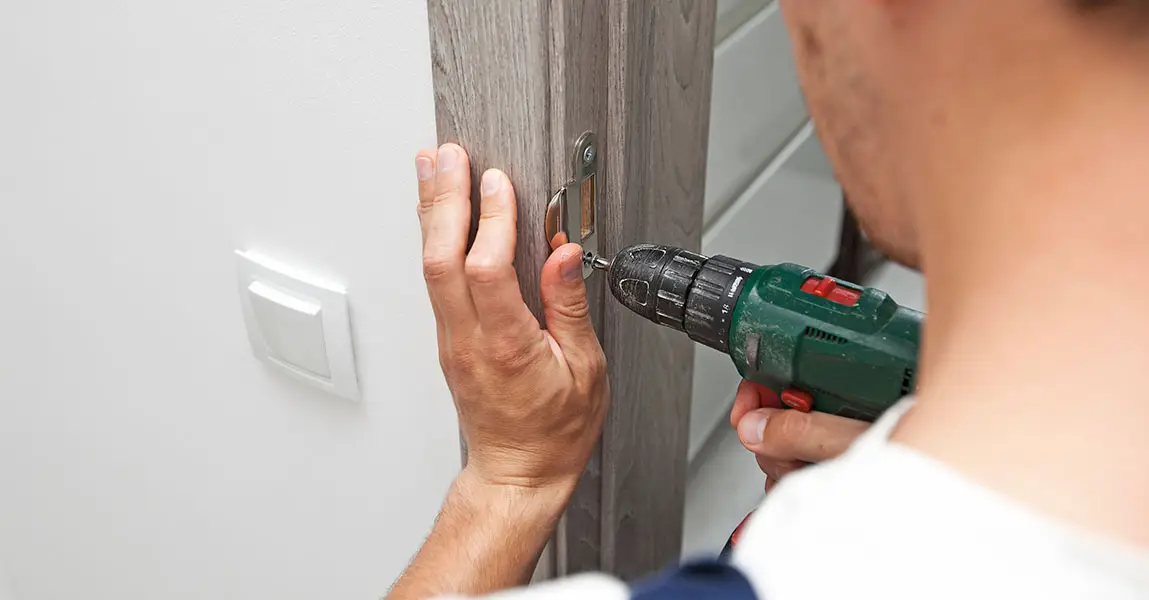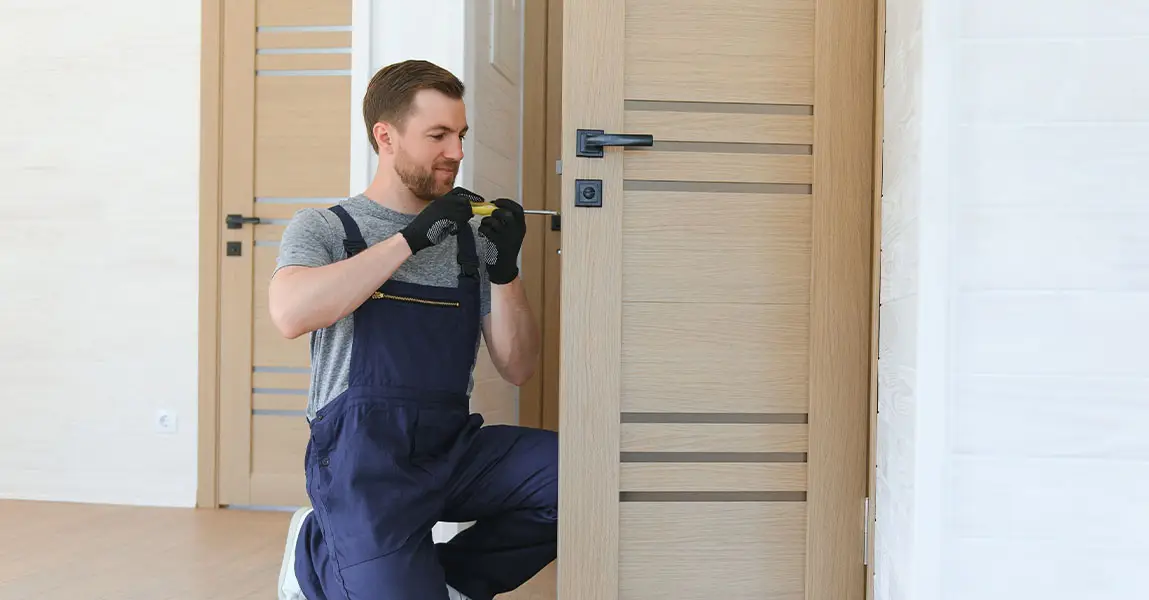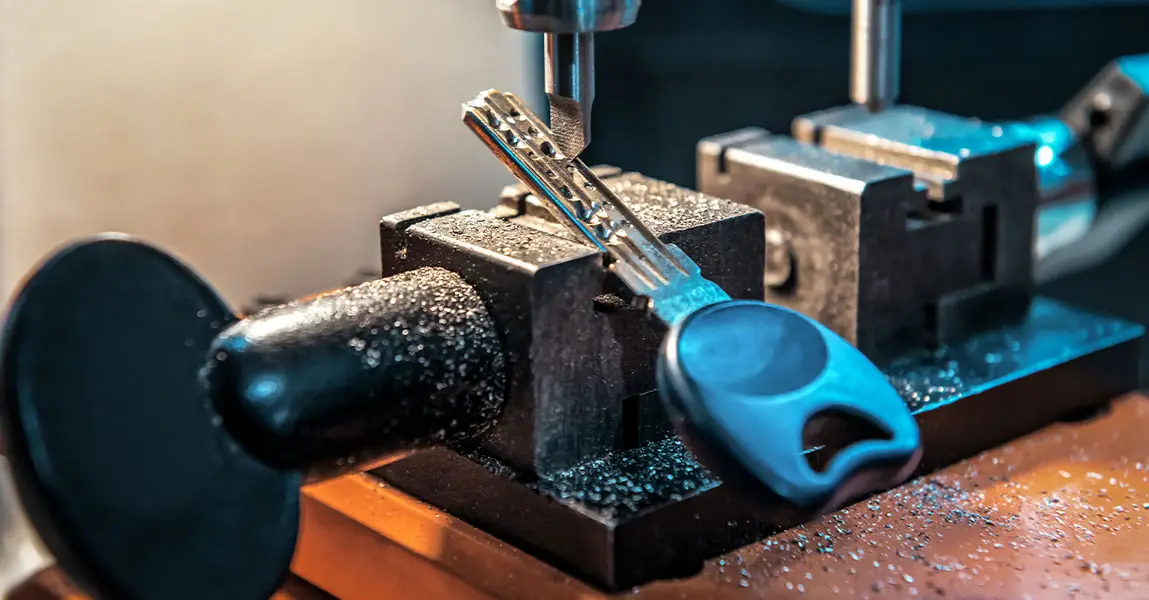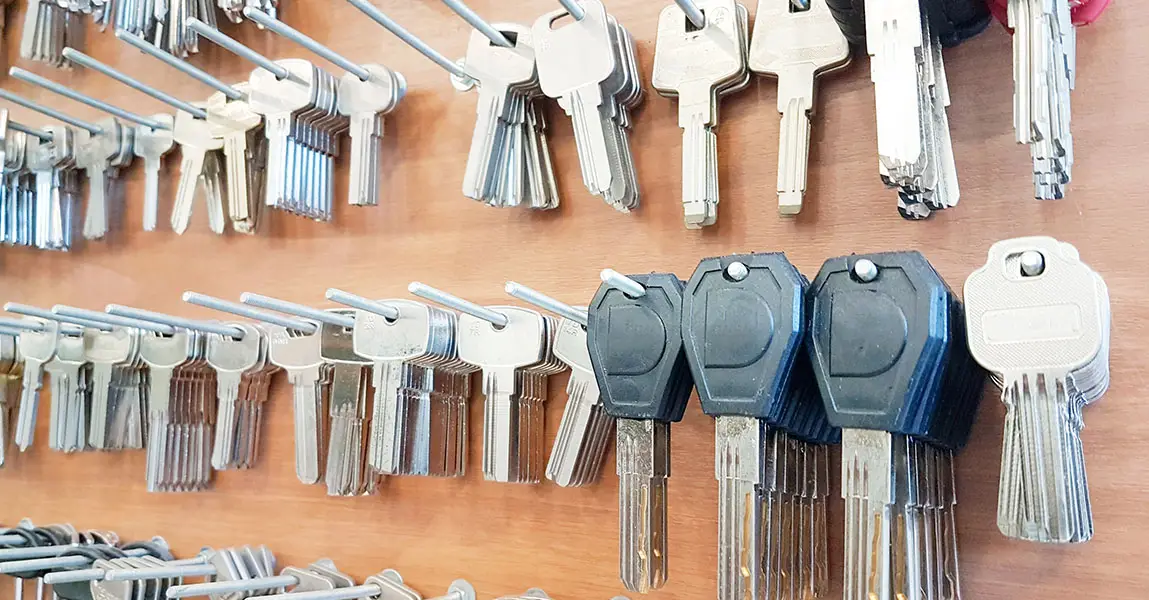Security is a constant concern for every business owner. From protecting assets and employees to maintaining compliance and access control, strong security systems create trust and safety. We often think of locksmiths only when a key goes missing or a door jams, but commercial locksmiths play a much larger role. They help businesses build preventive security strategies that stop problems before they happen and adapt protection as the company grows.
Understanding the Role of a Commercial Locksmith
A commercial locksmith works with offices, retail stores, warehouses, and industrial facilities to handle all lock and access-related issues. Our role goes beyond cutting keys or unlocking doors. We design, install, and maintain security systems that match business operations. This includes mechanical locks, keyless entry systems, safes, and electronic access points.
Every commercial property has unique risks. A small storefront may only need reinforced entry locks and secure cabinets, while a large facility might require master key systems or digital access control. We assess vulnerabilities in each layout, review door types, and suggest layered security. By addressing weaknesses early, companies avoid major losses, downtime, or legal issues later.
Why Calgary Businesses Need Professional Locksmith Support
Calgary’s business community is diverse, from offices downtown to industrial parks on the outskirts. With so many entry points, staff shifts, and storage areas, even minor lock issues can cause disruptions. A professional locksmith understands both local safety standards and the practical side of running a business in this city’s climate and environment.
Cold weather often affects metal components in locks and door frames. Freezing temperatures can cause misalignment and damage, especially on exterior entrances. We inspect and maintain commercial hardware to keep everything working smoothly all year. In addition, we help business owners plan emergency access so operations never stop because of a lock failure.
Professional locksmiths also help companies stay compliant with safety codes. Building regulations often require specific lock types for fire exits or restricted areas. Ignoring these can result in penalties or insurance problems. When we manage commercial locks, we make sure they meet both safety and insurance requirements.
The Benefits of Regular Security Assessments
Security is not something that stays fixed. Staff turnover, new products, and layout changes all affect how secure a building remains. Regular locksmith assessments reveal issues that may go unnoticed. For instance, when multiple employees share keys, copies may exist outside company control. A locksmith can rekey locks or install access systems that track entries without disrupting workflow.
We also evaluate door frames, hinges, and strike plates. These elements often weaken over time and become entry points for break-ins. Reinforcing hardware and installing door closers add extra protection. During assessments, we look at lighting, signage, and blind spots, recommending changes that complement mechanical security.
A full assessment gives business owners a clear security map. They see where to invest and which risks are urgent. Over time, this proactive approach saves money compared to constant emergency repairs.
Advanced Access Control for Modern Workplaces
Many Calgary companies now use electronic or smart locks to manage entry. These systems allow managers to assign and remove access instantly without changing physical keys. They also provide logs that show who entered and when. For large offices or shared spaces, this helps maintain accountability.
However, digital systems still need professional handling. We configure access controls to ensure they connect securely with existing infrastructure. Without proper setup, a system might fail during power outages or leave gaps in coverage. A locksmith who understands network and hardware compatibility ensures reliability across all access points.
Some businesses use hybrid systems that combine keycards with mechanical locks. This setup offers flexibility and cost control. Locksmiths maintain both parts so one malfunction does not compromise overall security.
For companies seeking more insight into building-wide solutions, visiting locksmith Calgary provides detailed examples of integrated services and approaches that fit different property types.
Rekeying and Master Key Systems
Employee changes are part of running any business. But when keys go missing or staff move on, those small changes can become major security risks. Rekeying is a quick and affordable solution. Instead of replacing entire locks, we adjust internal pins so old keys no longer work. The process restores control immediately without disturbing daily activity.
Larger facilities often use master key systems. This structure gives managers different access levels across departments. For instance, one key may open all offices while another only opens storage rooms. Locksmiths design these systems to maintain hierarchy and prevent unauthorized movement inside a building.
We also make sure master key systems are documented and updated. When locks are added or changed, a missing update can lead to confusion later. Consistent records reduce errors and make audits easier.
Safes and Secure Storage
Every business handles valuable materials—cash, records, or equipment—that need extra protection. A safe is only as reliable as its placement and installation. Locksmiths guide owners in choosing the right safe for each environment. Fireproof, drop, or high-security safes all serve different purposes.
We install safes in discreet yet accessible locations and teach staff proper handling to prevent jams or accidental lockouts. Maintenance includes checking hinges, bolts, and locking mechanisms to ensure quick operation when needed. If a safe malfunctions, we can open and repair it without damaging contents or structure.
Locksmiths also help integrate safes into broader security plans. Combining mechanical storage with digital records or alarms strengthens overall protection. For many small businesses, this combined method ensures compliance with both safety and financial standards.
Emergency Locksmith Response
Even with planning, emergencies happen. Keys break, locks jam, or systems malfunction. When that occurs, having a reliable locksmith who already understands your layout makes all the difference. Emergency locksmiths respond quickly to restore access while preventing further issues.
We prioritize emergencies that affect business continuity. For example, a warehouse unable to open a delivery door risks costly delays. Our technicians carry tools for on-site repair, rekeying, and immediate replacement. For electronic locks, we also bring diagnostic equipment to resolve software issues.
Regular clients benefit from faster service because their property details are already in our records. That allows technicians to bring correct parts and finish work faster. To schedule direct support or ask about rapid services, you can always contact us.
Balancing Security and Convenience
A strong system should protect assets without slowing down operations. Too much restriction can frustrate staff, while too little control invites risk. Locksmiths help find that balance. By studying workflow, we design access points that are both secure and practical.
For example, we might recommend keypad locks for shared offices but mechanical keys for storage rooms that rarely change users. In retail environments, time-delay locks on safes can reduce theft risk without burdening employees. Each setup matches the rhythm of the workplace.
We also plan for future changes. If a company expands or relocates, modular systems allow easy upgrades without replacing everything. Maintaining flexibility keeps security strong even as business needs evolve.
Combining Physical and Digital Security
Modern threats often come from both physical and digital sources. While IT teams handle networks, locksmiths secure the hardware side—doors, cabinets, and access readers. The two systems work best when aligned. We advise companies on where to place readers, how to store backup keys, and when to change codes.
For example, a server room may have both a keypad and a manual override lock. Each must work together in case one fails. We coordinate with IT or facility managers to create backup procedures that keep operations safe during power losses or cyber issues.
By merging these disciplines, companies achieve complete protection. Doors, data, and daily operations all stay under controlled access. This integrated approach is becoming essential as more workplaces adopt digital systems and shared spaces.
Ongoing Maintenance Keeps Systems Reliable
Locks and security systems are like any other equipment—they need maintenance to stay dependable. Dust, humidity, and frequent use wear down internal parts over time. Scheduled service prevents unexpected breakdowns and reduces repair costs.
We lubricate components, tighten fittings, and replace worn keys. For electronic systems, we test backup batteries and software connections. Regular attention also extends warranty coverage, since many manufacturers require maintenance records for replacement parts.
Maintaining security equipment also protects insurance coverage. If a claim arises after a break-in, showing that locks were serviced recently proves due diligence. For many businesses, this small detail prevents major disputes later.
Educating Staff About Security Practices
Even the best hardware cannot protect a business if employees ignore procedures. Locksmiths often provide guidance on safe habits, such as not sharing codes or labeling keys visibly. These small actions prevent accidental breaches.
We also suggest training supervisors to monitor who holds which keys and when replacements are issued. For digital systems, we recommend scheduled code changes every few months. Creating accountability across all levels builds a stronger culture of security.
When everyone understands their role, it becomes easier to maintain consistency. Staff feel safer knowing that proper systems protect them, and management gains peace of mind knowing each measure supports the next.
Frequently Asked Questions
1. How often should a business rekey its locks?
Rekeying every time a keyholder leaves or loses access is best. Even if nothing seems wrong, rekeying once a year keeps control clear and prevents unauthorized entry.
2. What is the advantage of a master key system?
It allows structured access. Managers can open all doors while employees access only assigned areas. This keeps workflows smooth and maintains accountability.
3. Can digital locks fail during power outages?
Some can, but most commercial systems include battery backups or manual overrides. Regular testing ensures access stays consistent even without power.
4. How can locksmiths improve overall business security?
They analyze weak spots, recommend better hardware, and maintain access systems. Their work combines prevention, repair, and planning to keep properties safe.
5. Is it necessary to service locks regularly?
Yes. Routine maintenance reduces breakdowns and extends the lifespan of locks and keys. It also ensures systems continue meeting insurance and safety standards.











